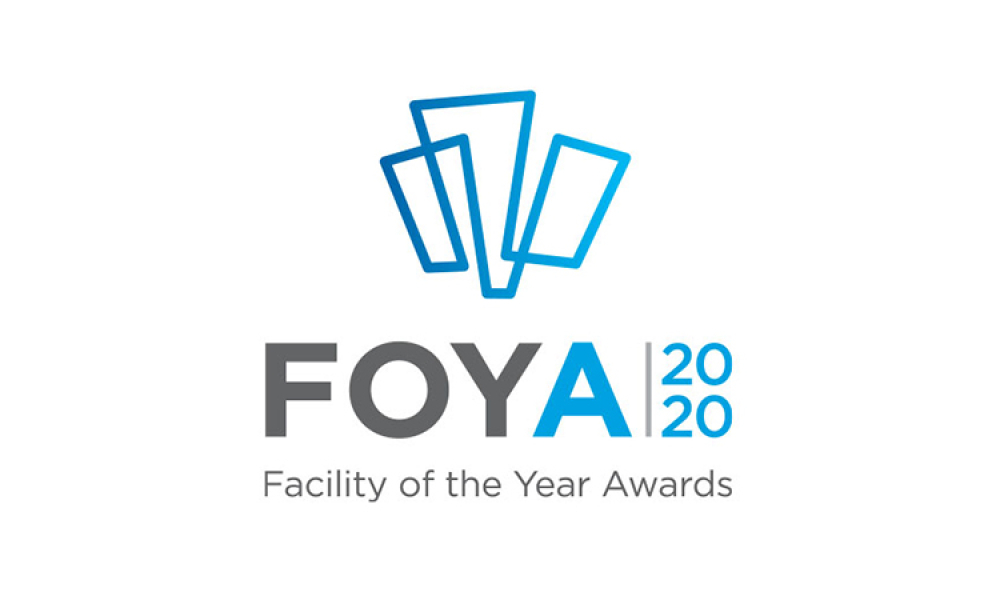Europe Annual Conference: Young Professional Highlights

This year's Europe Annual Meeting in Rome featured YP track leads, YP keynote speakers Caroline Rocks and Robert Landertingera.
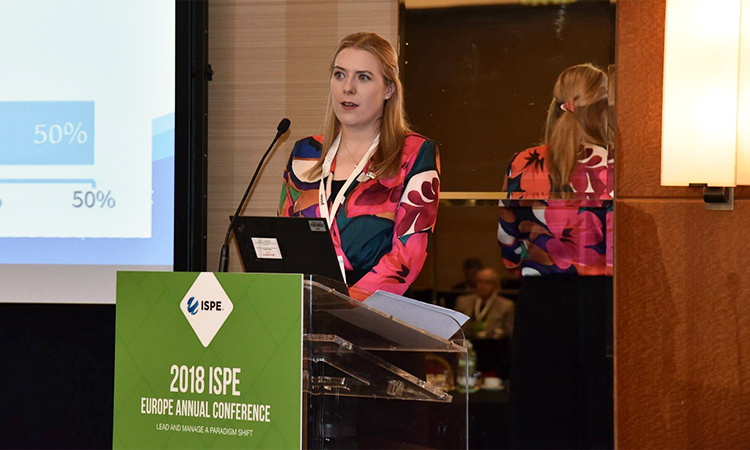
BEST-YET YP PARTICIPATION
Young Professionals (YPs) often ask us about the value of attending ISPE’s large international conferences. As an answer, we’re happy to report that YP participation is going from strength to strength at these events. This year’s Europe Annual Meeting in Rome was no exception, featuring YP track leads, YP keynote speakers, and a second successful YP Hackathon. We’re already looking forward to the YP events that will be hosted at the ISPE Annual Meeting and Expo later this year in Philadelphia, and at the 2019 Europe Annual Meeting in Dublin.
YP co-chairs
Increased YP participation was an objective set by the International Young Professional Committee (IYPC) for 2018. To accomplish this goal, a new strategy was proposed at the ISPE Pharma 4.0 Conference in Verona last November: Include YPs as education track co-chairs. The format has proved successful, and continued at the Rome meeting.
- Pharma 4.0: Thorsten Böhle, Chair, DACH YPC; Federico Poli, Italy YP
- Factory of the Future and Aseptic Processing: Marick Paris-Cadet, France YP
- Data Integrity: Matteo Pracchia, Italy YP
- Anti-Counterfeiting and Mass Serialisation Challenges: Abdelghani Meqdad, France YP
The YP co-chairs began to work well in advance of the conference with their involvement in the program committee, selecting speakers and choosing track themes. Each YP co-chair also received coaching from his or her track Chair on speaker introductions, audience encouragement, and managing Q & A sessions.
Caroline Rocks, IYPC Chair and Ireland YP, presented the YP perspective on Workforce of the Future to the Global Pharmaceutical Manufacturing Leadership Forum (GPMLF). Her talk included the results of a global survey conducted with over 40 YP leaders, and a live audience poll to gauge agreement between the GPMLF and YPs on future skills and current gaps. She also presented recommendations from the Workforce of the Future Academic subteam, who have partnered with industry and academia to define needed changes in course curricula to address future skill needs.
YP keynote
Robert Landertinger, IYPC Europe Regional Leader and DACH YP, gave a keynote speech on YPs and Pharma 4.0, presenting the next generation’s challenge on execution. He recapped the results of the Hackathon and summarized why this will have a significant effect on the medicines of tomorrow.
Digitalization, a major factor in Pharma 4.0, is a reality for YPs, Landertinger said. He pointed out that streaming and online communities already dominate their lives. Being familiar with these technologies gives YPs a high “digital maturity” level. In conclusion, he outlined how digitalization is a ecting job profi les and how robotics is changing the workspace.
YP networking and acknowledgments
A networking dinner drew over 60 ISPE members including YPs, Board members, GPMLF members, and ISPE staff. Tables were mixed to allow meaningful networking for everyone. Many thanks to Novo Nordisk, who sponsored this large dinner.
The Italy A liate, as the host country, sponsored a second YP dinner to allow Hackathon participants, who represented 10 different countries, to meet in advance of the event. Many thanks to Frederico Poli and Matteo Pracchia from the Italy YPs for choosing a wonderful restaurant and treating us to classic pizzas and pastas!
Many thanks also to Thomas Zimmer, Elmarie Herloff-Petersen, the team at EUROKONGRESS GmbH, and the Italy Affiliate for their support. Much appreciation goes also to Sartorius-Stedim Biotech for sponsoring refreshments as the YPs worked late into the night of the Hackathon! Thanks also to the a liates and corporations who sponsored many of their YPs’ participation and travel.
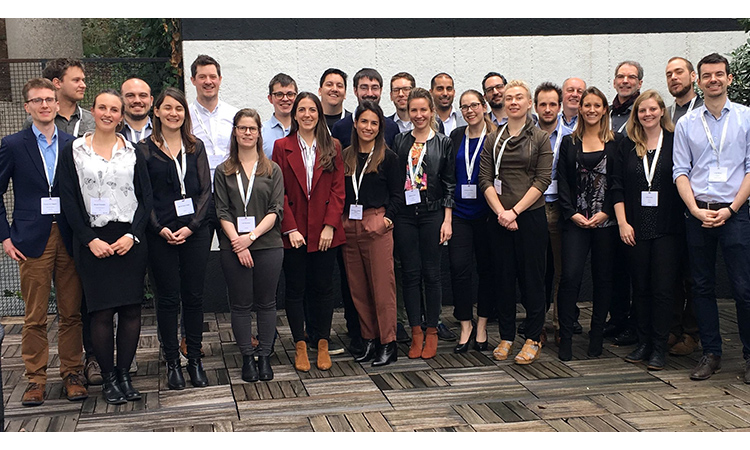
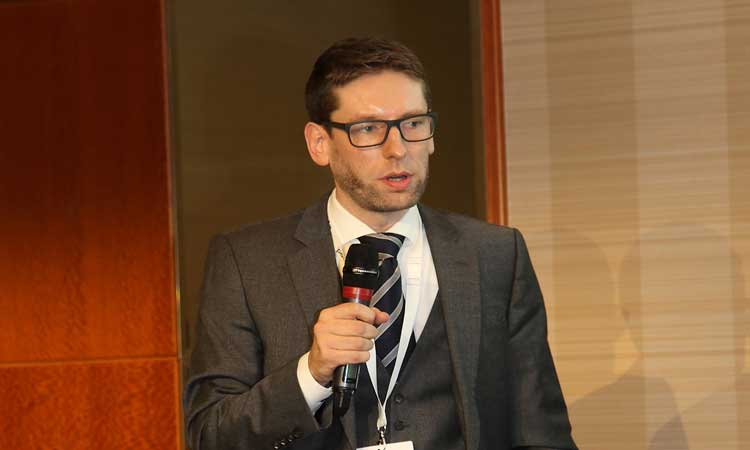
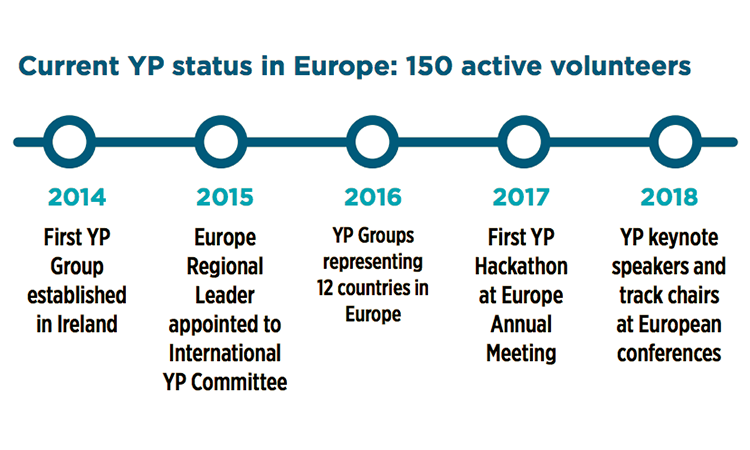
2018 Hackathon Participants
- Niels de Blende, ISPE YP Belgium
- Thorsten Böhle, F. Hoffmann-La Roche AG
- John Clarke, Pfi zer
- Christiane Dickel, Werum IT Solutions GmbH
- Anna Emanuelsson, ABB
- Lise Heyninck, Novartis
- Caroline Kustermans, Altran Belgium SA-NV
- Chloe Lang, Sartorius-Stedim Data Analytics
- Martina Laus, Novartis
- Craig Milner, Sanofi
- Fiachra O’Raghallaigh, John Sisk and Son
- Marick Paris-Cadet, Technip
- Margot Pazzaglia, Techniconsult Firenze Srl
- Federico Poli, Italia Automazione Srl
- Matteo Pracchia, CTP System Srl
- Diego Rodriguez Yañez, Eli Lilly and Company
- Thomas Rubow, NNE
- Beatriz Sacristan, Pfi zer
- Marta Malo de Molina Solano, Laboratorios
- Farmacéuticos Rovi
- Jan Wambeke, Pfi zer
- Thomas de Vliegere, MSD Heist Operations
PHARMA 4.0 HACKATHON
The biggest YP event at this year’s Europe Annual Meeting was the Hackathon, which was organized by Craig Milner, Senior Project Engineer, Sanofi and UK YP Chair; and Chloe Lang, Senior Data Scientist, Sartorius-Stedim Data Analytics, and DACH YP.
The Hackathon is a 24-hour challenge in which YPs work in groups to explore, strategize, innovate, and overcome future industry challenges. The Pharma 4.0 event was the second of its kind; the inaugural Hackathon was held at the 2017 Europe Annual Meeting in Barcelona.
The YPs, who hailed from 10 different European countries, were supported by four coaches: Damian Greene, Senior Associate, Lachman Consultant Services; Christian Wölbeling, Senior Director Global Accounts, Werum IT; Dr. Michelangelo Canzoneri; Digital Operations Leader, Sanofi ; and Davide Smaldone, Corporate IT Demand Manager and Pharmaceutical Track and Trace Expert, Menarini Group.
The first day started with an introduction from each coach on concepts such as ICH Q10, Pharma 4.0, building business cases, and breaking down industry silos. After each YP group chose a topic or challenge as its focus, they selected a starting point from among a variety of options, including biotech allogeneic/autologous therapy, regenerative medicines, personalized/individualized medicines, single-use technology, regulatory challenges, small-molecule factories of the future, process analytical technology (PAT), automation architecture, data integrity, big data, serialization, artificial intelligence, unmanned factories, and many other examples.
Groups of six were divided into two teams. Three members were the “client” and three were the “consultant.” The client, who had a $5 billion investment fund, had to consider an area for development over the next five years. The consultant team had to help guide the client to develop the concept, a high-level business case, and charter for design and implementation.
Having settled on their respective challenges, each YP group chose their own area of focus. Interestingly, all teams selected a personalized medicine concept, but each had a different approach and area of innovation; all included a holistic manufacturing control strategy.
To challenge the YPs to back up their ideas and show value, each group also created a business case that supported their concept. While all participants had strong technical backgrounds, the business case calculations were clearly challenges. This demonstrates that interdisciplinary knowledge is not yet a standard component of education in the sciences.
Concept 1
The first YP group chose the problem of drug shortages caused by increased population. Focusing on a low-volume, high-value product (hormone therapy), they found two areas affected by product loss or wastage in the supply chain. By tailoring the dose to patient need and not overfilling, they developed a concept that charged per patient per year instead of per vial.
Other concepts considered were using an injectable chip to monitor and determine needed dosage, a technology already in the market. Chip data analysis results would be sent directly to the manufacturing site as an order. This could reduce some patient data issues raised by the European Union Data Protection Regulation Act, since only the analysis is sent to the production site; the data is owned by patient. The drug would be validated as one product strength with variable fill volume. In-process control and release testing would be in real time using PAT, and personalized packaging with serialization would track the product. The group proposed that distribution be outsourced (e.g., Amazon) with a quality agreement and tracking.
Concept 2
The second concept considered a disruptive approach by rethinking drug-to-patient supply. The idea originally focused on cholesterol, but the group decided another target might be more appropriate. In this case the YPs chose to locate diagnostic equipment (single use, disposable chip analysis) at a pharmacy. The manufacturing facility would be located at the distribution center with concepts including factory on a truck, plug and play, adaptive formulation with exact quantities, and 3D printing. The product would be delivered to the patient’s home, and diagnostic data could be fed back for improved formulation and efficacy.
The hackathon is a 24-hour challenge in which yps work in groups to explore, strategize, innovate, and overcome future industry challenges.
Concept 3
The final concept took the option of providing a drug that could cure leukemia. This YP Group developed a factory of the future with an automated production process that used augmented reality to train operators, and blockchain for data management (data integrity and security). Since the time to patient delivery is crucial, smart packaging was proposed. The drug product would be packaged and sent to the patient while final release testing was being performed. The package could not be opened until quality had been approved, reducing the need for on-site storage.
At the end of their work, after only a few hours’ sleep, the YP groups presented their results to the GPMLF. Each group pitched their concept to the forum members, who acted as potential investors for each project. The key question was always: “Will you trust and invest in our business idea?”
The Hackathon provided a great opportunity for YPs to meet each other, interact with industry leaders and develop their knowledge around current industry guidelines and trends. Results were presented during the Pharma 4.0 track by Thorsten Böhle, DACH YP, showcasing the YPs and their hard work.
And in case you’re wondering: The second concept won the challenge.
Check out the online YP community page for more photos and information of the YPs at ISPE Europe Annual Meeting. It’s easy to join our YP community; just select it during your registration process or update your existing account on www.ISPE.org.
We welcome more volunteers to grow our YP groups globally and to participate in local and international ISPE events. If you are interested in finding out more, email us at ask@ispe.org and put “IYP Chair” in the subject line.
Join the conversation on the YP Community page.


